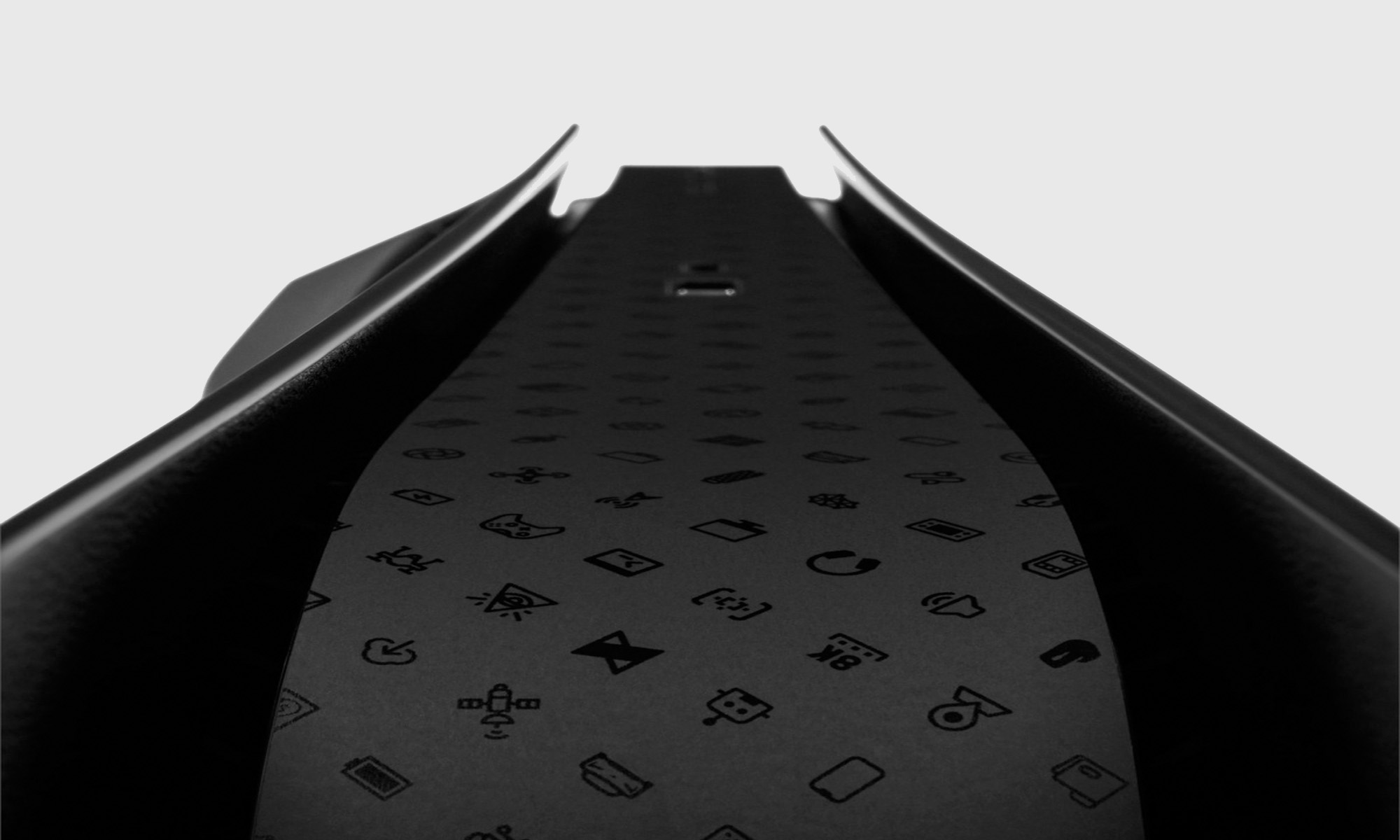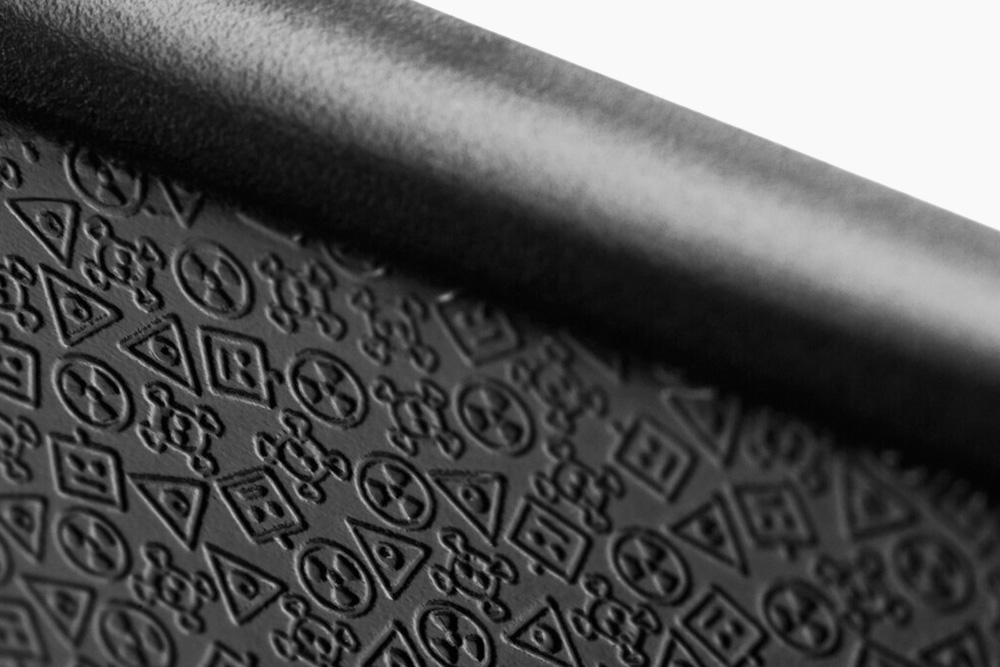News
You Can Now Make Your PS5 Matte Black Thanks To Dbrand’s Darkplates

When Sony first revealed the PlayStation 5, the two-color curvy design sparked a heated discussion online, with some reporters comparing it to a trophy you might get at an award show and some to a boutique Wi-Fi router. If you’re among the PlayStation 5 owners who are secretly or openly jealous of the more understated design of the Xbox Series X, then we have good news for you: accessory maker Dbrand is selling custom black matte faceplates for PS5, known as Darkplates.

Dbrand
Starting at $49, the set of faceplates lets you easily change the look of your console to please your design taste buds. Besides the faceplates themselves, you can also customize the look of the middle section by ordering one of the optional middle skins (available in matte black, neon yellow, matte white, and several different patterns).

Dbrand
The faceplates feature “a familiar-but-legally-distinct apocalyptic spin on the classic PlayStation button shapes,” which is also how Dbrand would most likely defend its product should Sony decide to take it to court.
Why in the world would Sony do that? To start with, Darkplates are an unofficial accessory sold without Sony’s approval. Last year, accessory seller CustomizeMyPlates was forced to cancel all orders after legal action from Sony, so Dbrand wouldn’t be the first company to feel Sony’s boot on its backside. What’s more, Dbrand is actually touting Sony by saying, “Go ahead, sue us,” on its website.
Also Read: Facebook Is Working On A Smartwatch With Health-Tracking Capabilities
So far, three waves of Darkplates have been shipped to buyers around the world, and the fourth wave is expected to be sold out soon, so you should hurry up if you want to get your hands on this product, whose marketing is just as polarizing as the design of the PlayStation 5.
News
Influencer Growth Fuels Saudi Creator Economy Surge
The Kingdom’s creator economy grew over 32% in Q1 2025, fueled by TikTok, UGC, and cost-per-action (CPA) influencer models.

Saudi Arabia’s creator economy saw a significant 32.37% growth in the first quarter of 2025, driven by an uptick in influencer marketing, content-driven e-commerce, and the increasing influence of user-generated content (UGC). These insights come from a recent study by Admitad and the Stllr Network.
Much of this momentum is coming from video-based platforms, where brands are leaning on creators who feel more relatable than polished ad campaigns. The trend shows a clear preference for authenticity, as audiences gravitate toward content that feels real and personal.
Mohannad Alzahrani, Co-founder and VP KSA of Stllr Network, highlighted the shift: “The rise of user-generated content (UGC) is changing the way brands engage with consumers. Audiences trust real creators more than traditional advertising, making UGC a key driver of authenticity and sales”.
TikTok remains the dominant platform in this space, reportedly reaching 88% of the Saudi population. It also showed the sharpest rise in influencer-led transactions. Other platforms followed with solid, if less dramatic, growth: X was up 17%, Instagram increased by 12%, and Telegram by 10%.
In terms of content niches, beauty led the pack with a 56% growth rate, followed by lifestyle at 45.8% and fashion at 18.2%. Tech content also showed healthy traction at 10.6%, while entertainment, food, fitness, parenting, and gaming posted smaller — but still positive — gains.
Also Read: Top E-Commerce Websites In The Middle East In 2025
The report analyzed more than 300,000 influencer-driven purchases. These efforts translated into a 15% year-on-year jump in Gross Merchandise Value (GMV) and a 5% increase in the number of orders in 2024. Influencers themselves are seeing the benefit, with average order values hitting $54 and creator earnings rising by 14%.
A noticeable trend is the move away from fixed-rate deals. More influencers in Saudi Arabia are embracing hybrid compensation models — especially cost-per-action (CPA) setups that tie their earnings directly to performance.
As Anna Gidirim, CEO of Admitad, explains, “The CPA model brings much-needed transparency to influencer marketing. Brands only pay for actual results, and influencers benefit by securing long-term partnerships while offering their audiences exclusive promo codes and special discounts”.
However, the ecosystem still shows a gender imbalance. The data indicates that 63% of creators in Saudi Arabia are men, while women account for just 37%.





















